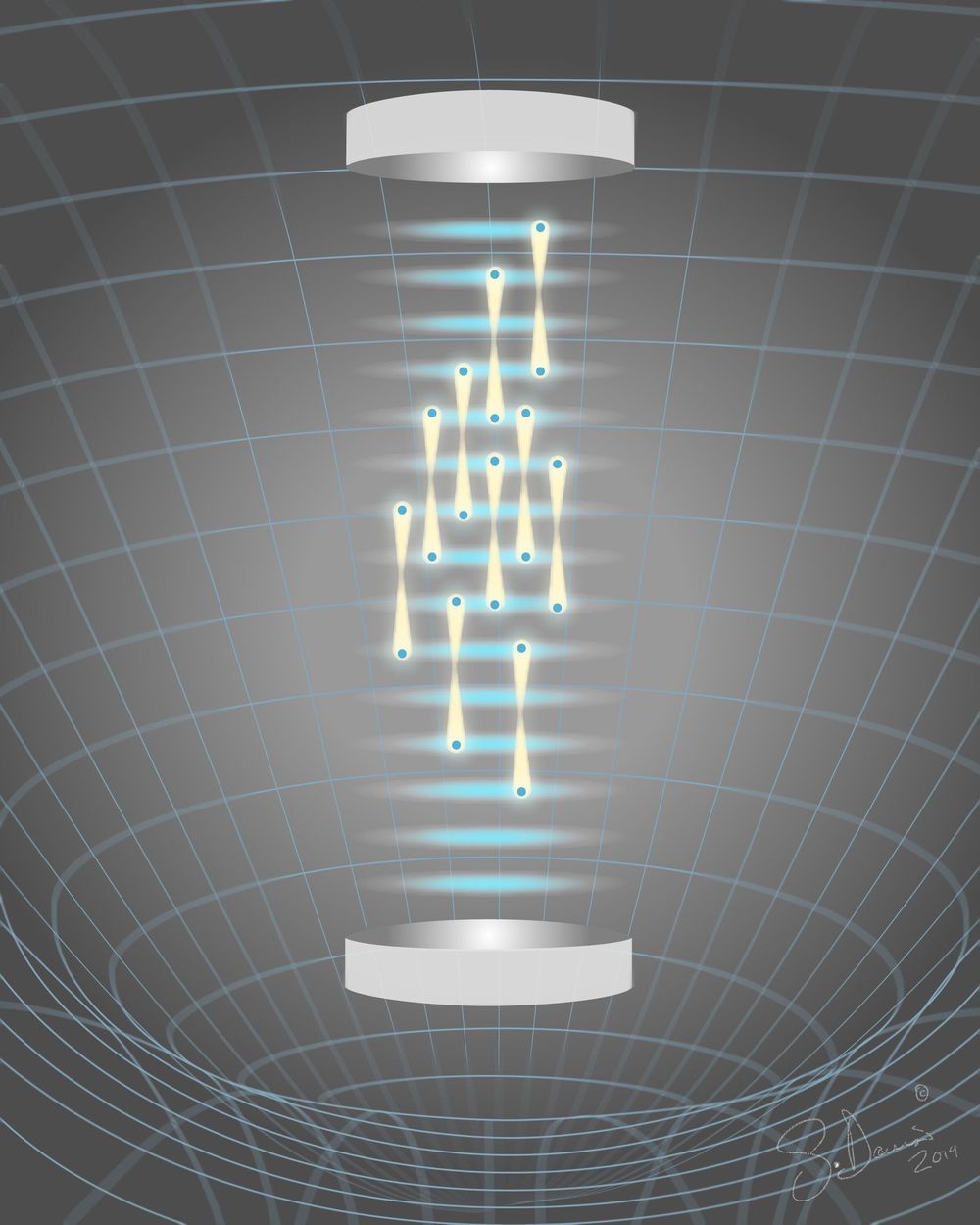A team of researchers at the University of California, Berkeley, has found a new way to measure gravity—by noting differences in atoms in a supposition state, suspended in the air by lasers. In their paper published in the journal Science, the group describes their new technique and explain why they believe it will be more useful than traditional methods.
Currently, the standard way to conduct gravity experiments is to drop things down shielded tubes and measure them as they whiz by instruments. In addition to giving researchers a very brief glimpse of gravitational interactions, such methods often fall prey to inadvertent stray magnetic fields. In this new effort, the researchers have found a way to measure gravity that does not involve dropping objects at all.
The new approach involved releasing a cloud of cesium atoms into the air in a small chamber and then using flashing lights to split several of them into a superposition state. Once split, lasers were used to keep all the atoms in fixed positions with one of each pair raised slightly higher than its mate. The team then measured each atom’s wave particle duality, which is impacted by gravity. By measuring the difference in duality between the paired atoms (because of the difference in their distances from Earth), the researchers were able to come up with a measurement for gravity.
